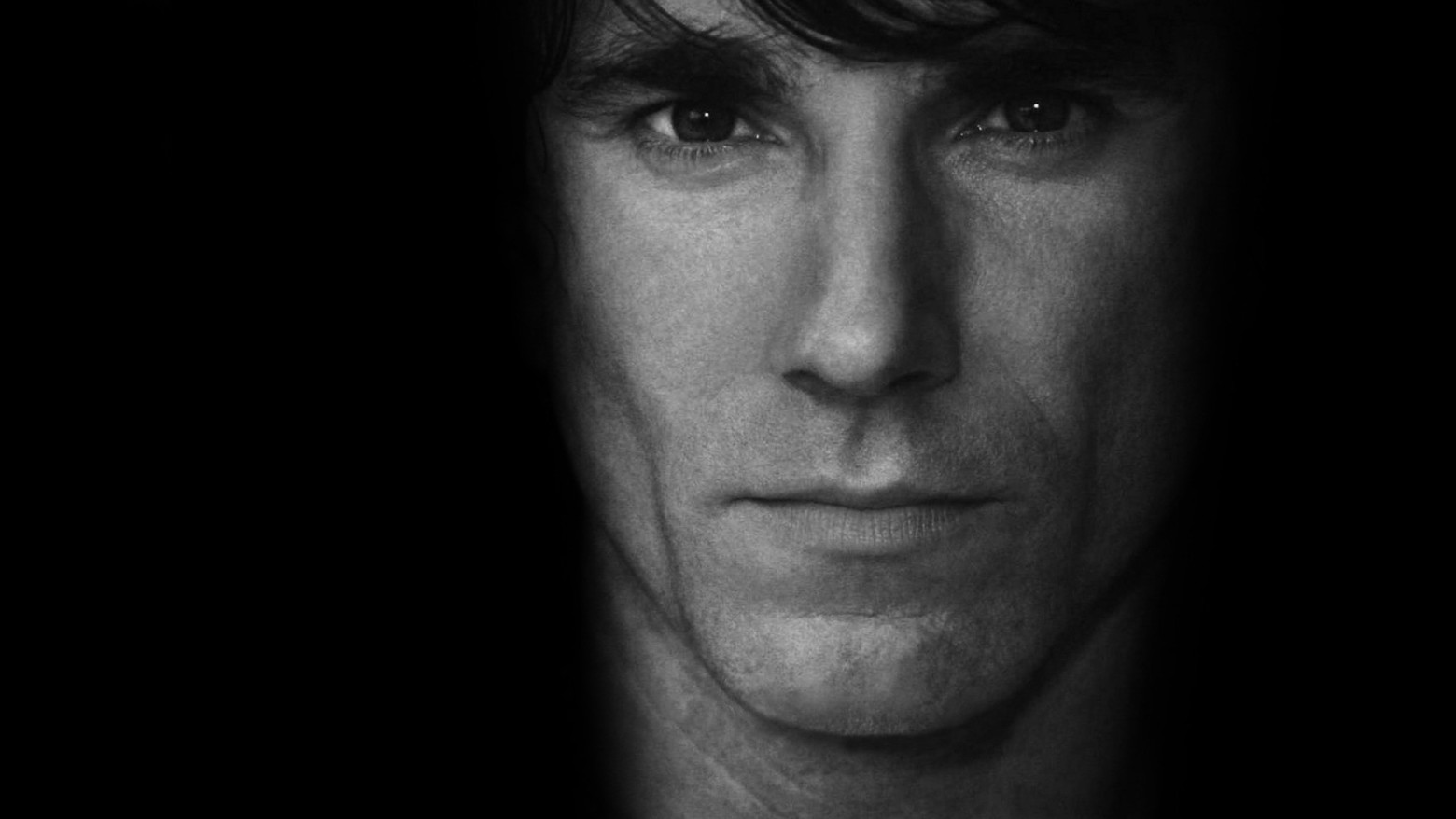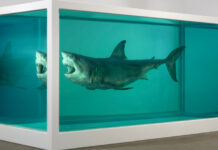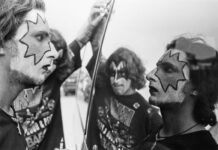I saw him for the first time in “My Left Foot”. A man condemned by fate and society to remain a trash, an effluvium of the evolutionary process but he was refusing to accept what the others were thinking of him, while spitting the words and walking using his left foot only. The strong nose, the eyebrows, the stone face, the wiry movements. A hero?
I took and read Christy Brown’s self-titled book. In there, I found once again the man that I had seen on the screen. Daniel Day-Lewis had pulled off enacting Brown impeccably.
I didn’t know then that Day-Lewis doesn’t play his roles; he becomes his roles.
~~
Acting in cinema, and the theatre as well, as we know it today, began in Russia at the end of the 19th century, beginnings of the 20th.
Largely responsible for this revolution was a man that only actors and directors know his name, Konstantin Stanislavsky.
But this man changed the world of art – and subsequently the whole world – more than thousands of others did.
Before Stanislavsky and the Moscow Art Theatre, the actors would learn the art of mannerism and how to recite. Every feeling was conveyed through a stereotyped motion, as they were taught in the Faculty. Acting encompassed fencing lessons and vocal training and that was the end of the apprenticeship.
Stanislavsky and his colleagues shaped the actor as we know today. His system was imparted to America. From there, thanks to the cinema and great interpreters of the “Approach” (from Marlon Brando to Al Pacino and numerous others) we learned to see humans on stage and not just actors pretending to be doing something.
Daniel Day-Lewis, in his own way, may be Stanislavsky’s best student.
~~
Daniel is English-Irish with Jewish descendant from his mother’s side. He came from an artistic and prosperous family. Therefore, when they moved to south London, Daniel had to go through “as a Jew and rich kid” in tough neighborhoods. To do so, he imitated the way his neighbours spoke, as well as their behavior.
That was the first role in his life and he played it pretty well. Soon his parents sent him to a private boarding school to get him out of the troubles he was involved into, while he had already started committing petty crimes.
Daniel was also a “problem child” there until he discovered two out of the three things that he would do passionately throughout this entire life: acting and carpentry (the third one is fishing).
When he was fourteen years old, he played as an extra in the film “Sunday Bloody Sunday” a child vandal who was breaking luxurious cars. This role is registered in his memory banks as “heaven”.
~~
When he finished school, he played assorted roles. The first starring one he got was in “The Unbearable Lightness of Being”.
Day-Lewis began building his myth as an actor in this very movie. During the eight months of the shootings, Lewis learned to speak Czechish (although the role was English-speaking) and he never got out from Tomas’ character.
This means that for eight months, he was behaving the whole day, even not when filming, as if Tomas. He had become his role. (I bet he would surely tell women “Take off your clothes”.)
But the inauguration of the Day-Lewis Method was in “My Left Foot”.
~~
Before the shootings began, he was visiting very often a clinic in Dublin with people who had similar problems with the writer Brown.
Once the filming began, he never got out the skin of his role. He was living in a wheelchair, he was eating with his foot, he was writing with it, he was cursing the production assistants when they were trying to lift him up.
Day-Lewis didn’t “play” Brown; he had become Brown.
He won, thereby, his first Oscar (the first out of the three and he is the only man who has won it three times).
~~
In “The Last of the Mohicans” he expanded his approach.
He worked out very hard to gain weight and tone up. More than that, he learned to live in nature on his own by hunting and fishing. The most brutal details of his training tell us that he learned to skin the animals he killed and he also learned to building canoes.
Day-Lewis became an American Indian (and I’m pretty sure he would pray to the Spirit of Animal each time he killed one).
~
His next role was Gerry Conlon in a movie directed by Jim Sheridan (the director of “My left foot”), “The Name of the Father”.
For this role, he was speaking with an Irish accent on and off the stage. He stayed for a long time in prison where he was drawing and writing. He wanted the production assistants to throw cold water at him and cursing him in order to get into the mindset of a prisoner as if conducting a Zimbardo experiment – using himself as a guinea pig.
He was nominated for Oscar once more, but lost it to Tom Hanks in Philadelphia. However, we have one more hero to commemorate, both winner and beaten, laughing and laughed at.
~~
Lewis carried on disappearing into his characters in movies that relied mostly on acting.
The movie “There Will Be Blood” directed by Paul Thomas Anderson was one based on interpretation for sure.
He won the Oscar (who else could beat him that year?) and dedicated it to Heath Ledger for his performance in “Brokeback Mountain”.
With this Oscar he entered the trinity of actors who have won one in two not successive decades, among other iconic figures like Marlon Brando and Jack Nicholson.
He grew bigger than them five years later, winning one more Oscar as Abraham Lincoln. For this role, he asked the director Spielberg one year for preparation. He read over 100 books on him, he learned by heart his speeches and worked personally with make-up artists to achieve better results in resembling Lincoln.
The movie (a personal opinion) is a cut below the previous ones he did but, undoubtedly, no one could become more Lincoln than Daniel Day-Lewis.
After this movie (2013) he announced that he would be taking a break – and he went for fishing.
~~
If somebody pays attention to the frequency he makes movies, they will see that he played in just seven films in the last twenty years (!).
Contrary to other great actors, like De Niro or Antony Hopkins, who play in every Marvel movie or comedy they are proposed, it looks as if he chooses repertoire and lifestyle.
Off stage, when he is not becoming someone else, he spends his time on his big passion, the carpentry; and also with his family.
He states that he is an agnostic, he goes fishing, he got married to Arthur Miller’s daughter and donated the proceeds of the premiere of “Lincoln” to the Open Door Center of the Spastics Society of Greece. What an oddball star!
~~
Wrapping it up, here is a short story about Stanislavsky’s system and its perils.
Stanislavsky himself had observed that sometimes the actors he coached were getting “hysterical” as they were becoming their role.
The actor who follows this approach is insane in a sense, since they must become someone else. The better they do it, the deeper in the skin of the role they get, the better actors they are. But be careful of the Mandrake for it conceals secrets and gifts. The absolute identification with someone else might lead to the strangest trails.
In 1989 Day-Lewis performed his final theater act. It was Hamlet in the Royal National Theatre.
When it came to the scene where the Shakespearean hero sees the ghost of his father, Day-Lewis collapsed. He went back to the dressing room and refused to go back on stage. Eventually, the rest of his acts were performed by his stand-in.
The manager, his colleagues, the director did their best to cover Day-Lewis by saying that it was exhaustion that brought him to his knees (literally, since the actor was lying on the floor weeping).
The actor himself admitted a few years later that he had seen the ghost of his dead father, the poet Cecil Day-Lewis, soaring above the theatre’s stage.
He left England after this incident and he did not attempt ever again to set foot on a theatre’s stage (or play Shakespeare).
~~
We could finish this article by mentioning the semantic hero-worship of the cinema actors. Day-Lewis is tied to collective subconsciousness of humanity with so many heroes (of a wide palette).
We could write a lot more about the Stanislavsky’s approach of Day-Lewis, how he incarnates the roles he gets.
But what remains is just a wish: to still walk on this earth until Day-Lewis makes his comeback to the small screen and become a role we would like to see with flesh and bones.
If I could choose, I would ask him to become, for a film, God. Just to get a picture how would God be, if possessed a body because I’m positive that Day-Lewis would get into the skin of the role far better than anybody else.
~~~~~~~~~~~~~~~~~~~









